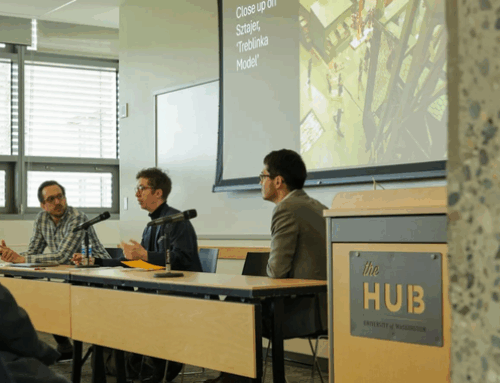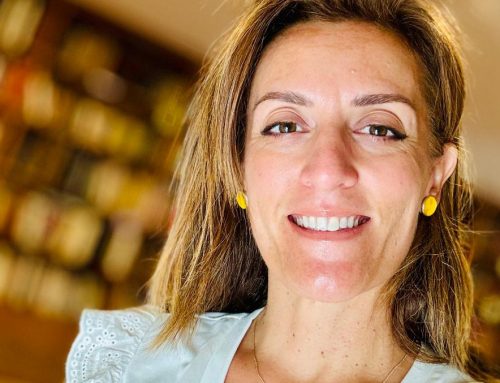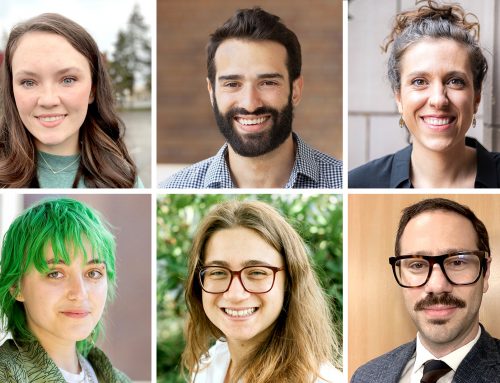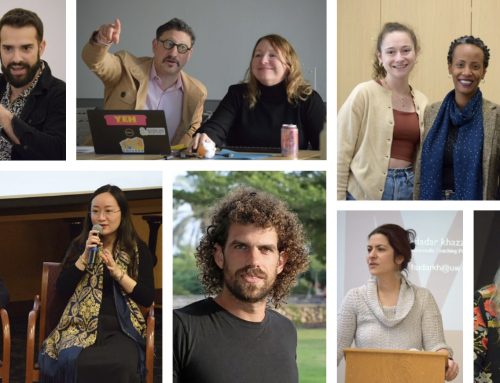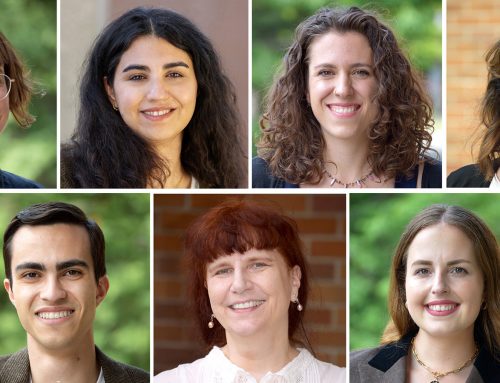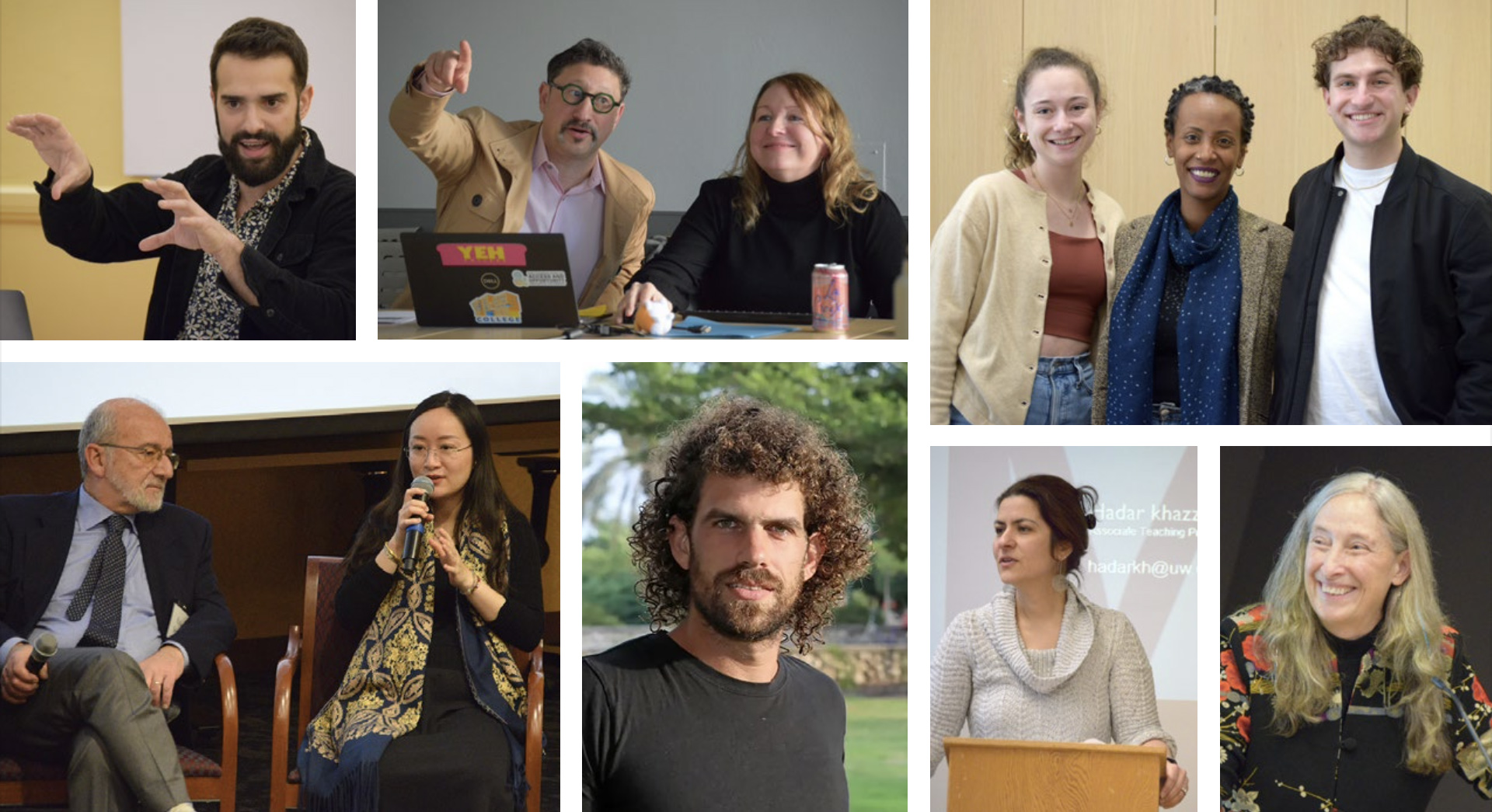
Photos by Kohana Aisaka and Meryl Schenker. Portrait of Hayim Katsman by Eliyahu Hershkovitz
Dear friends,
There are no words to adequately to describe the past year, so I begin with images instead. In the pages of our impact report for this year, you can see pictures of our distinguished teachers, including this year’s outstanding instructors Hadar Khazzam-Horovitz and Kathryn McConaughy Medill; brilliant students like Outstanding Undergraduate Lauren Zarlingo and Husky 100 honoree Anaëlle Oiknine; and the amazing array of guest speakers we hosted this year, including ethnomusicologist Edwin Seroussi, sociologist and chair of the Association for Ethiopian Jews Efrat Yerday, environmentalist and former Knesset member Alon Tal, religion scholar Cynthia Baker, and Holocaust historian Marion Kaplan.
However, the person around whom our hearts and minds orbited all year was our former student and alumnus Hayim Katsman, who was killed by Hamas on October 7, along with 1,200 others. Within days our campus became a proxy for the war in the Middle East, with people insisting that their perspective was the only way to see things, that there was no complexity, only a binary of good and evil. It wasn’t just our campus; this became the reality at many universities, synagogues, non-profit organizations, and other workplaces.
In this climate, our Jewish Studies classrooms became even more important as places on campus where students of diverse backgrounds and politics still came together, still heard each other, were still in conversation, and still held space for complexity and multiple perspectives.
I had to remind myself over and over again that this is what we’re here for: Jewish Studies scholars believe that multiple narratives and perspectives can coexist, can be true, even if they contradict each other. We affirm that wisdom is, in the words of F. Scott Fitzgerald, “the ability to hold two opposing ideas in mind at the same time and still retain the ability to function… [to] be able to see that things are hopeless yet be determined to make them otherwise.”
I wonder if Fitzgerald knew of Rabbi Tarfon’s famous words from two thousand years ago: “It does not fall on you to finish all the work of the world, but you are not free to desist from it.” These two statements seem to me to be related: We must keep focusing on our mission and vision for good, regardless of how bleak the circumstances may feel.
If those words resonate with you, you are part of our Jewish Studies community. And we have important work ahead of us.
Thank you for being a supporter and friend of the Stroum Center for Jewish Studies.
Mika Ahuvia
Director, Stroum Center for Jewish Studies
Herbert L. & Lucia S. Pruzan Chair in Jewish Studies
Associate Professor, Jackson School of International Studies

